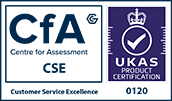Records of the West Yorkshire European Nuclear Disarmament Group
Archive reference: Cwl WYEND
West Yorkshire European Nuclear Disarmament Group
European Nuclear Disarmament (END) was a British group set up in 1980 to further the work called for in the END Appeal. This document had been produced by E.P. Thompson, with the input of others including Mary Kaldor, Ken Coates, and Robin Cook. It called for a non-aligned, nuclear-weapon free Europe, from “Poland to Portugal”.
The West Yorkshire Regional END (abbreviated as WYREND or WYEND) was one of several regional END groups. WYEND did not attempt to “become involved in all aspects of peace campaigning”, but to promote the END idea outlined in the Appeal, “to concentrate on the political dimension of the peace campaign and to promote discussion of the issues involved”. WYEND’s activities included promoting nuclear-free zones, organising and attending conferences, offering speakers to local groups, and publishing a regular bulletin. Close links were formed with local universities, for example a 1983 joint conference for Western European peace activists with Bradford University Peace Studies department.
Individuals active in the group, many of whom undertook various officer roles at different times, included David Browning, Graham Carey, Ursula Duncan, Josephine Elgin, Brigitte Fath, Roger Fieldhouse, Julian Harber, Fred Hasson, Tony Lockwood, Michael McGowan, Lydia Merrill, John Schwartzmantel, Richard Taylor, Peter Thompson, and Nigel Young.
Dwindling membership in the mid-1980s led to a decision to wind up WYEND in 1988.
The Records
One of the Commonweal Archives, this material was donated to Commonweal in 1994 by Peter Thompson, who was secretary at the time the group was disbanded. Some appears to have been acquired separately by Commonweal. The Archive includes minutes, correspondence, circulars and notes. Most material dates from the period 1981-1983 when the group was most active.
The Archive was catalogued as part of the PaxCat Project, with support from the National Cataloguing Grants Programme for Archives.
Cwl WYEND collection description 2010
If you require this information in an alternative format, please contact our team. You can also read our Website Accessibility Statement.


